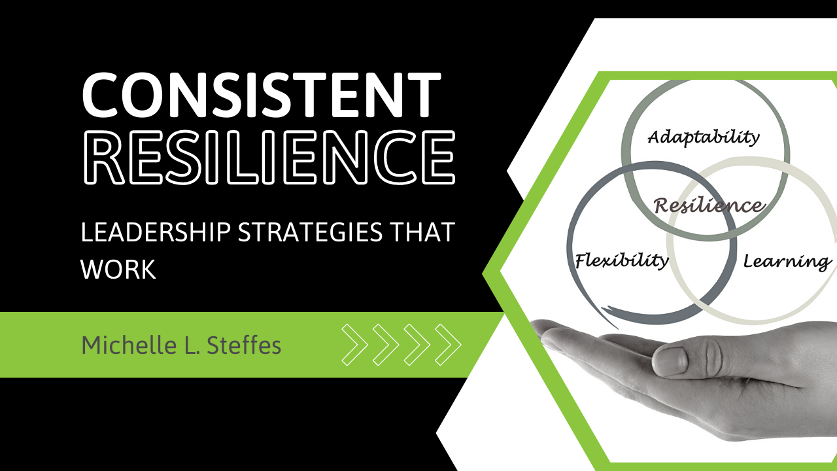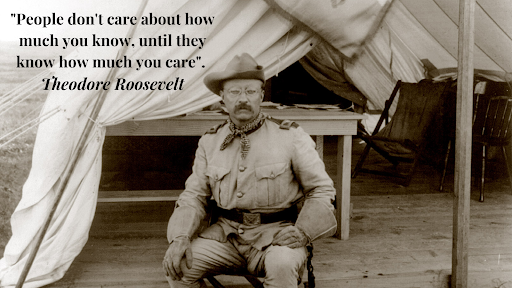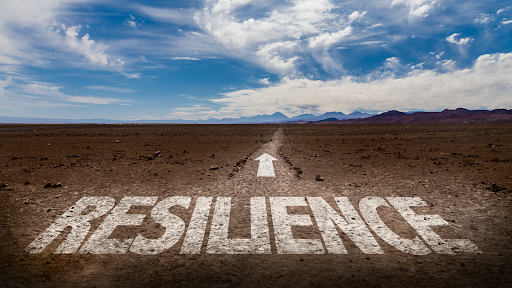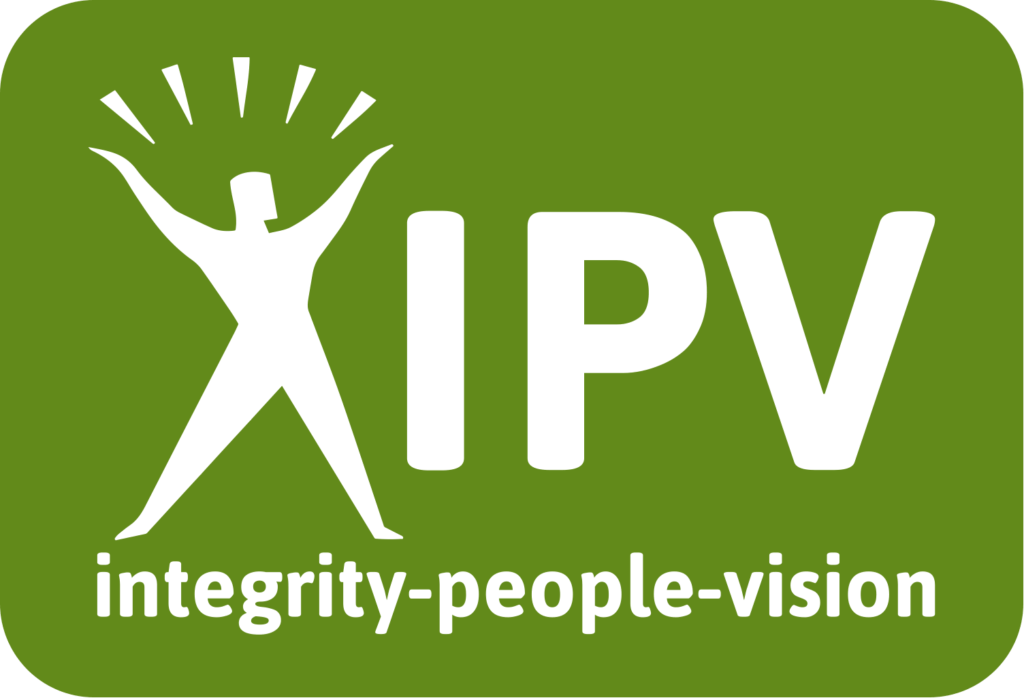
I love talking about leadership and resilience, I really think they go hand in hand. In other words, if you are a leader and you are not resilient, you’re not going to be able to communicate with your people at a level that they will be able to understand.
One of my favorite quotes is by Theodore Roosevelt, “People don’t care how much you know until they know how much you care”.

If you are not practicing consistent resilience, you’re going to risk damaging your relationships and the necessary connection to your team. Your inability to manage stress and challenges will appear like you are preoccupied with so many other things that you don’t have time for them. Even if you feel like you’re a good leader and even if you feel like you have a good relationship with your team, when you are just running around harried, confused, frustrated, and anxious, you’re typically going to come across as being unapproachable.
Furthermore, when you are under stress, you release stress hormones such as cortisol and adrenaline, which are the fight or flight. When they hit the frontal cortex of your brain, they literally paralyze that frontal cortex. This makes it hard for you to think clearly, to be visionary, and to be able to communicate effectively, and with empathy, with your team.
I teach methods on how to bring that cortisol down and how to release more serotonin and oxytocin. These are the positive hormones that make us feel great, they also create a bond that tears down defensiveness and gives you an opportunity to communicate more effectively with your team.When you are too busy trying to take care of the business, because you’re tasky, have a perfectionist side to you, preventing you from effective delegation, or you just don’t know how to say no, then you cut yourself off from the people who really can be building your business. A true leader will take care of the people first who then take care of the business.

The two most popular topics that I teach leaders have been Resilience in Times of Change, and Heart Centered Leadership. Some of the takeaways in Resilience in Times of Change are:
- Understanding the “Cycle of Change” and the Keys to Getting Through the Danger Zone.
- The Physiology behind Stress: How it Inhibits Our Potential & Performance
- How to Reframe & Rewire in the Midst of Uncertainty & Change
- Equipping Yourself & Influencing Others in Challenging Times
- Mastering A Powerful State of Mind in all Situations
And a few takeaways for Heart Centered Leadership are:
- The Statistics of Disengagement and the Keys to Reversing it
- The Role of the Heart in Influence and Transformational Leadership
- The Keys to Culture Transformation and Team Loyalty
- Leadership Practices that Tear Down Silos and Turf Wars
- Engagement Methods that Draw out Untapped Talents
Understanding the science behind behaviors and learning how to manage our emotions more effectively is key to our success both as individuals and as leaders. This is why we must make an intentional effort to become the best version of ourselves and set an example for our teams.

When we talk about leadership, it’s more about leading from the heart. It’s more about helping people to understand, that you understand them. When you can take care of your team, they will take care of your business.
That’s the bottom line.
When you are too busy trying to take care of the business, because you’re tasky, have a perfectionist side to you, preventing you from effective delegation, or you just don’t know how to say no, then you cut yourself off from the people who really can be building your business. A true leader will take care of the people first who then take care of the business.
Connection to your team is going to be the key to helping your people promote what you want promoted because they are the ambassadors of your vision.
The first step toward an engaged, productive team is to schedule your FREE session with our coaches.





